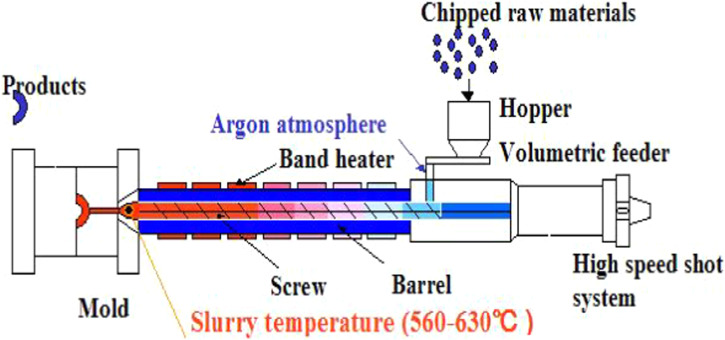Hot chamber die casting is a widely used manufacturing technique that offers numerous advantages and finds applications in various industries. This process involves injecting molten metal into a die cavity under high pressure, resulting in the production of complex parts with exceptional precision. In this article, we will delve into the advantages of hot chamber die casting and examine its diverse applications.
One of the primary advantages of hot chamber die casting is its high production efficiency. The process allows for the creation of multiple parts simultaneously, leading to a rapid and cost-effective production cycle. Moreover, the close tolerances achievable with hot chamber die casting reduce the need for further machining, resulting in significant time and cost savings.
Another benefit of hot chamber die casting is its ability to produce parts with intricate designs and complex geometries. The molten metal is injected into the die cavity under high pressure, ensuring that even the smallest details of the design are accurately replicated. This makes hot chamber die casting suitable for manufacturing components like engine blocks, transmission cases, and aerospace parts, which often require intricate shapes and precise dimensions.
Additionally, hot chamber die casting offers excellent surface finishes. The high-pressure injection of molten metal fills the die cavity completely, resulting in parts with smooth surfaces and minimal porosity. This makes hot chamber die casting suitable for producing parts that require minimal post-processing or finishing, such as decorative components or electronic housings.
Hot chamber die casting also boasts excellent material properties. The process enables the use of a wide range of metals and alloys, including zinc, magnesium, and aluminum. These materials possess high strength-to-weight ratios, excellent thermal conductivity, and good corrosion resistance, making them ideal for applications in the automotive, aerospace, and electronics industries.
The versatility of hot chamber die casting is further demonstrated by its ability to produce both small and large parts. The process can accommodate a wide range of part sizes, from small intricate components to larger structural parts. This flexibility makes hot chamber die casting suitable for a variety of industries, including automotive, consumer goods, and industrial equipment.
In the automotive industry, hot chamber die casting is commonly used for the production of engine components, such as cylinder heads and pistons. Its ability to produce parts with complex geometries and tight tolerances makes it a preferred manufacturing method in this sector. Similarly, the aerospace industry utilizes hot chamber die casting for the production of aircraft components, such as turbine blades and structural parts, where the combination of strength and precision is crucial.

Hot chamber die casting also finds applications in the consumer goods industry. It is used to manufacture various products, including kitchen appliances, decorative items, and electronic components. The process allows for the creation of intricate designs and smooth finishes, enhancing the aesthetic appeal of these products.
Hot chamber die casting offers numerous advantages that make it an attractive manufacturing technique across various industries. Its high production efficiency, ability to produce intricate designs, excellent surface finishes, and versatile material properties make it a preferred choice for the automotive, aerospace, consumer goods, and industrial equipment sectors. With ongoing advancements in technology and materials, hot chamber die casting is likely to continue playing a vital role in the production of complex and precise parts.
-

- Customized foundry products high precision die-casting parts for e-bike integrated frame
-

- Magnesium alloy thixomolding die-casting UAV parts C
-

- CNC machining auto dashboard bracket
-

- Magnesium alloy thixomolding die-casting UAV parts
-

- CNC machined parts & components
-

- Magnesium alloy die-casting parts&components for e-bike

 0086-750-5616188
0086-750-5616188 +86 13392089688
+86 13392089688 sales@zhongmei-tech.com
sales@zhongmei-tech.com






